Workshop “Scaling Agroforestry in Indonesia”
Jakarta, 23rd November 2023, agroforestry workshop entitled “Scaling Agroforestry in Indonesia” has been organized by Tropenbos International (TBI) and Tropenbos Indonesia (TI) in collaboration with the Kingdom of the Netherland Embassy in Indonesia.
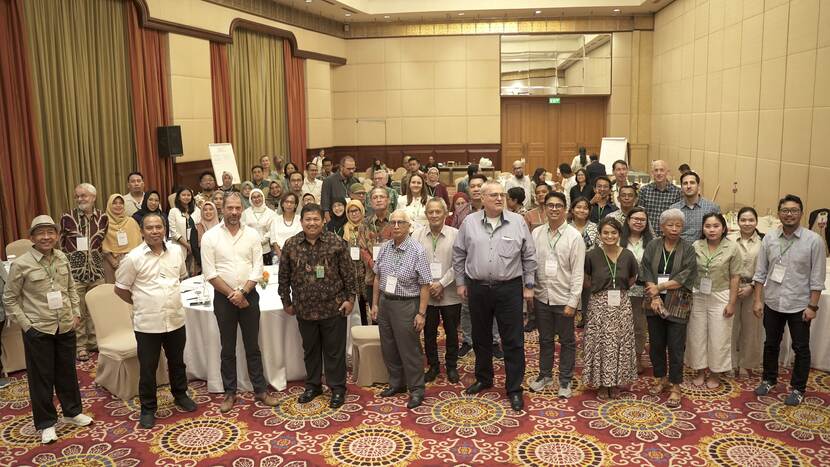
More than 100 participants attend the hybrid workshop, with around 70 offline participants and 40 online participants. Attendees come from various backgrounds such as from the government agencies, NGOs/CSOs, private sector, and university and research organizations. Giving the opening speech are Joost van Uum, the Agriculture Counsellor of the Embassy and Edi Purwanto, the Director of Tropenbos Indonesia, while the keynote speech is delivered by the Director General of Social Forestry and Environmental Partnership (PSKL) Ministry of Environment and Forestry, Dr. Bambang Supriyanto.
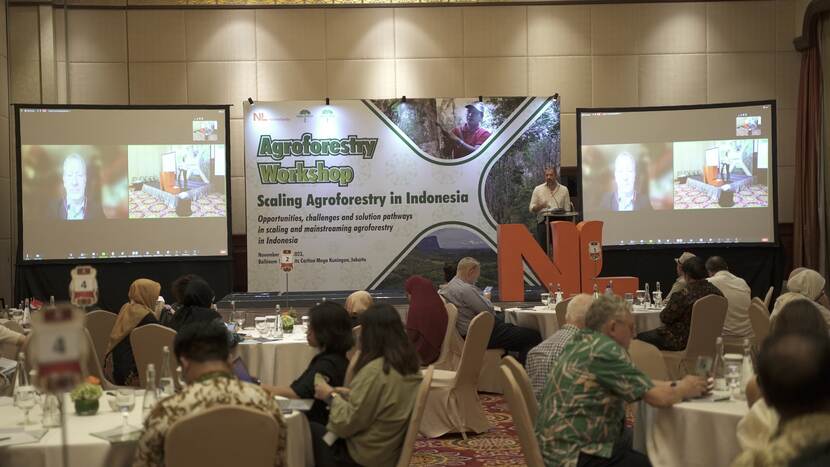
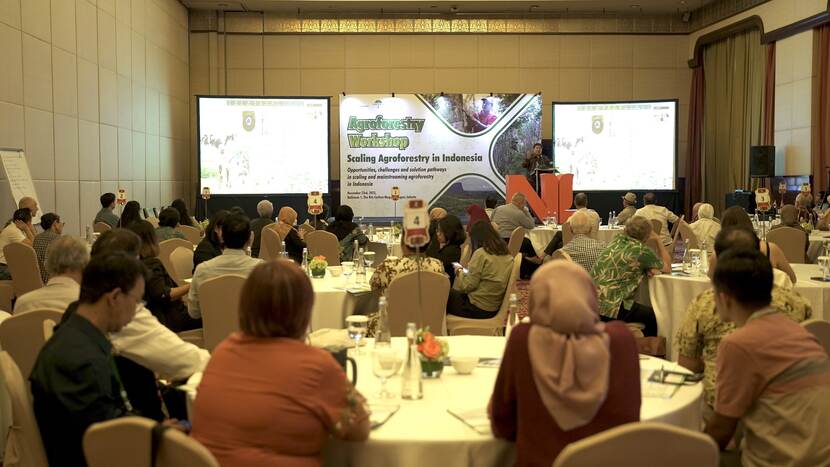
This workshop aims to introduce, validate, and fine-tune the results of an agroforestry study commissioned by the Netherlands Embassy done by Tropenbos International and Tropenbos Indonesia. The study aims to explore and identify agroforestry upscaling challenges that hinder the adoption and scaling of agroforestry in Indonesia. The study report presents the identification of scaling up and solution pathways including enhancement of policies and governance, mobilizing business and markets, creating awareness and outreach, and capacity building.
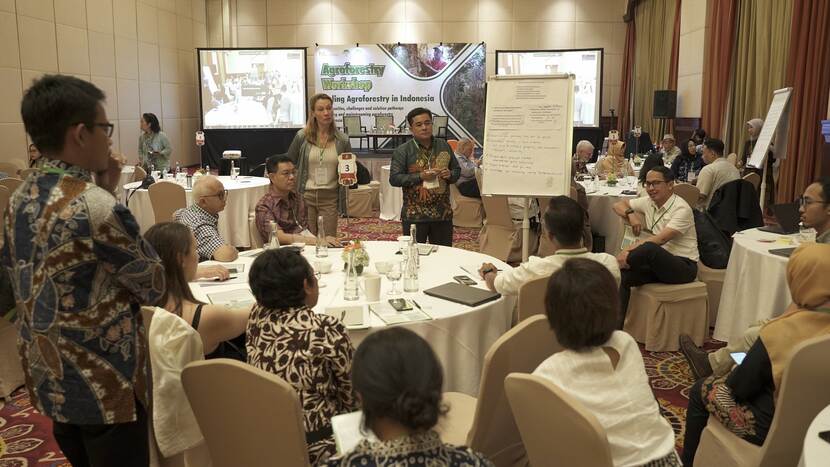
The involvement of stakeholders in promoting agroforestry practices is crucial in the scaling of agroforestry. Within the value chain, and through the enabling environment, a range of stakeholders have their own role to play in realizing the solution pathways. Thus, connecting all the related stakeholders is deemed important and this workshop is expected to become a good chance in exploring collaboration and collaborative exchanges and learning. There have been some promising ‘flagship’ initiatives that have successfully increased the economic viability of sustainable agroforestry despite the remaining slow scaling practices.
This event is expected to also be the first step towards strengthened collaboration and knowledge exchange between stakeholders. It can be achieved by identifying the needs in collaborative learning and knowledge to accelerate scaling and replication of flagship elements and to work collectively on the further development and promotion of agroforestry in Indonesia.
Presentations of initiatives from the agroforestry practitioners at the workshop can be seen from Gula-gula project by CO2Operate and RPL. Gula-gula project aims to Maximise livelihood improvements through ecosystem restoration using agroforestry system Carbon credits as co-benefits. Verstegen and Forestwise also present about the Future knowledge need in scaling agroforestry. Some inputs related to the role of the community of practice presented by Meine van Noordwijk from Wageningen University & Research.
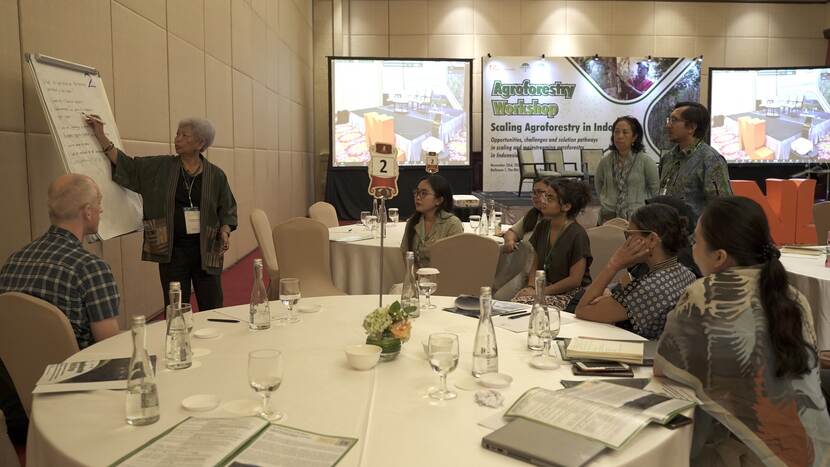
Agroforestry has been practiced for centuries in Indonesia and ranges from simple intercropping to complex integrated systems. Agroforestry practices offer a myriad of benefits, such as livelihood resilience, food security, carbon sequestration and biodiversity conservation. Despite the benefits and existing (policy) support for agroforestry, many agroforestry practices in Indonesia remain underdeveloped, limitedly spread, and even abandoned in favour of monoculture land uses, which is considered economically more attractive. Collaborative effort is in need to put forward scaling agroforestry and to promote agroforestry more into practice.